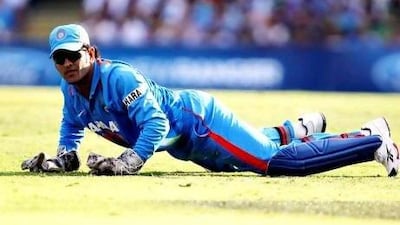These are exciting times for cricket fans, with the absence of a dominant side resulting in a spate of intriguing contests across the three formats.
Whether it is Test cricket or the one-day game, there is no clear front-runner, no team worthy of comparison with Steve Waugh's Australia squad or Clive Lloyd's West Indies team.
When England won an Ashes series 3-1 away and followed it up with a 4-0 annihilation of India, the No 1 ranked Test side, many thought that we were poised for another period of one-team domination.
Instead, England stumbled horribly in the Middle East against Pakistan, and their forthcoming assignments involve trials by spin in Sri Lanka and India and a tricky home series against a South African side that boasts the world's best bowler - Dale Steyn.
India were top of the tree for 18 months, including a difficult series away in South Africa, but those days are now a fading memory after resounding defeats in England and Australia.
They are world champions in the 50-over arena, but the difference in home and away form is as stark as can be.
Over the past two years, they have an imposing 23-3 record on home soil.
The numbers away (9-15) are far less flattering.
Australia have already thumped them twice in the Tri-nations series, including a comprehensive 110-run demolition at the Gabba yesterday.
Australia themselves are a shadow of what they once were.
Between May 1999 and May 2007, when they took home three consecutive World Cups, they won 174 games and lost just 49.
Since then, with the likes of Glenn McGrath, Adam Gilchrist and Matthew Hayden retiring, the record is a lot less impressive - 79-36.
The great Australian sides had options at pretty much every position.
In addition to those that straddled formats, they had proven one-day matchwinners such as Andrew Symonds, Brad Hogg and Nathan Bracken to call on.
The current side is a far more fragile beast.
In Sydney last week, Sri Lanka thrashed them by eight wickets in a rain-reduced game, and they have been heavily reliant on middle-order consolidation to reach decent totals.
David Warner has made some big statements in the Test arena this season, but in the one-day game, he has a way to go to match the mayhem that Gilchrist and Hayden were capable of on a consistent basis.
India's batting has been desperately disappointing too, with Sachin Tendulkar and Virender Sehwag accounting for just 98 runs from six innings. But even more worrying is the lack of incision from the bowlers.
The next World Cup is in Australia and New Zealand and, so far, India appear to have opted for the sort of tactics that Martin Crowe and New Zealand had success with until Inzamam-ul-Haq exposed them in the semi-final 20 years ago.
With the exception of Umesh Yadav, not one of India's pace bowlers can be called fast. Zaheer Khan relies on swing and seam movement, while Irfan Pathan and the two Kumars, Praveen and Vinay, become fair game when the ball doesn't swing.
For the moment, MS Dhoni, the India captain, does not appear to trust Ravindra Jadeja or Ravichandran Ashwin on seam-friendly surfaces.
The tactics at the Gabba were also mystifying, with Yadav introduced as late as the 23rd over.
Instead of being employed as a strike bowler with the new ball, as you would expect with someone capable of bowling at 150kph, he was asked to perform the role of mid-innings tourniquet, one he did not do any justice to.
The Sydney game and the exceptionally gifted Angelo Mathews aside, Sri Lanka have been similarly pedestrian with the ball.
If Farveez Maharoof can resurrect a career that has gone badly off track over the past few seasons, they can hope for better balance.
But until then, average bowling and a batting line-up capable of big feats will leave them with similar problems to India.
Unlike their two subcontinent rivals, Pakistan have had a much better time of it in the past eight or nine months.
But after the highs of the Test series against England, they have been strangely listless in the one-day matches. Umar Gul has been in dire form and the rest of the pace contingent are not a patch on those they could once call on.
But the real concern for Pakistan is the paucity of batting talent.
It remains to be seen whether Misbah-ul-Haq or Younis Khan will play on as far as the next World Cup.
But even with them around, Pakistan have crossed 250 - no more than a middling total these days - just five times in their past 30 games.
That they have won 22 of them is testament to the excellence of Saeed Ajmal, Shahid Afridi and others with the ball.
Any team that ventures to Australia or New Zealand with such flimsy batting is likely to be blown away, and it doesn't speak well of the options available when a consistent failure like Imran Farhat is recalled for the umpteenth time.
But with no side looking capable of imposing themselves as Australia once did, even Asia's flawed teams will look to 2015 without much trepidation.

